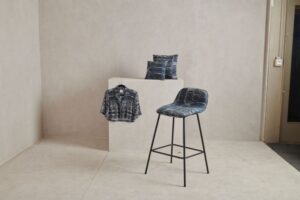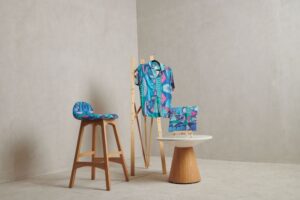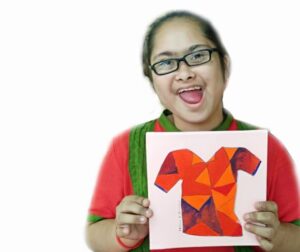Empowering people with neurodiversity through innovative designs in furniture
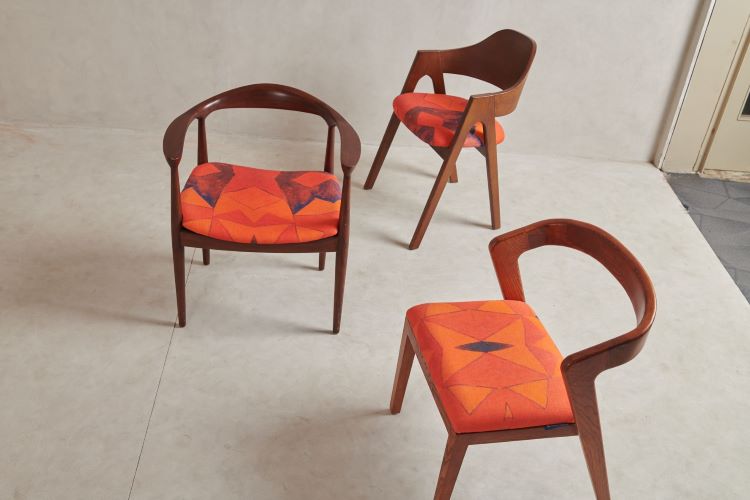
Vibrant orange can immediately perk up any space
Team L&M
Amardeep Designs and Sketch recently debuted into a new furniture line that recognises neurodiversity, and the creative potential of individuals with Autism and Down Syndrome, by leveraging their skills in contemporary commercial design.
The collection showcases the skillset of people on the spectrum of autism, and will hopefully inspire more initiatives to promote inclusion and accessibility.
Art has long been recognised as a medium for people with autism to express their feelings and even develop their motor and cognitive function. Amardeep Designs and Sketch has brought art works by autistic people to the forefront of its contemporary, modern furniture design.
In addition to changing the narrative around what Neurodiverse people can achieve, the pieces are also functional and beautiful; designed to fit seamlessly into any modern home, hospitality or office space. “We believe fashion has the power to make Inclusion a part of everyday conversation, and influence young people to be more empathetic and inclusive in their day to day life,” says Nikhita Kapur, Founder, Sketch.
Life & More spoke with Devesh Shah, Head of Business Development, Amardeep Design about the new collection. Excerpts:
Head of Business Development at
Amardeep Designs Devesh Shah
Tell us a little more about the collaboration with Sketch. How did it come about, and what does it entail?
The collection was created with the goal of empowering people with special needs and bringing their artwork to life through contemporary furniture design. During Amardeep Design’s mission to re-imagine the “furniture of tomorrow,” we discovered Sketch, a clothing brand that incorporates artwork created by children with autism and Down syndrome into their designs. We connected over our shared interest in making India more inclusive, and we began this collaboration with the goal of empowering, educating, and provoking conversation about inclusion and accessibility. Neurodiverse individuals, such as those with autism and Down syndrome, are frequently marginalised and not given enough opportunity to participate in society. We want to change this narrative by showcasing and leveraging their skills in modern, commercial design.It entails taking the upholstery inspired from artwork created by neurodiverse individuals
Who is the brain behind this collaboration?
I approached Sketch with the idea of putting their fabric on Amardeep furniture pieces and using that to raise awareness, accessibility, and inclusion in offices, schools, restaurants, and hospitals. Our products will be recognised as a Mark of Inclusion, as we intend to keep them in spaces that have an inclusive workforce and meet accessible design guidelines. Every product will symbolise the inclusive values and culture of the company or institute that embodies it.
How many total pieces have been created in this collaboration? Please share a little detail about each of these pieces.
Currently, there are eight designs we have chosen from our portfolio that will flaunt the fabric with the artwork. We will gradually expand and create furniture pieces that will allow us to develop and bring more prints from Sketch to our platform. We wanted the furniture to stand out while also blending in aesthetically through its form so that architects can easily place them in their spaces while the furniture pieces do the job of promoting awareness about our cause and celebrating the architects efforts towards creating inclusive and accessible spaces.
How many neuro-diverse people are involved in making these paintings
All of the artworks are created by young adults with autism or Down syndrome, and there are a total of seven artists involved in the creation of these paintings.
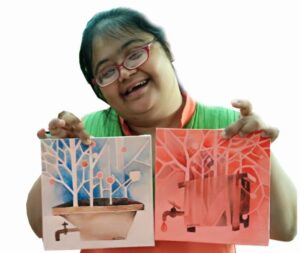
Artists Anisha Mehpani (left) and Nehal Panchal
How has been the response by customers?
The customer response has been positive. We are currently in the initial pitching stage with a number of architects and MNC clients who already have Inclusion initiatives in their organisations. Sketch has had a fantastic journey in terms of sales and brand awareness. We hope to create an ecosystem that includes people with different abilities, allowing them to be active participants in our growing economy.
Do you plan more such collaborations with sketch or other organisations working in the space of neurodiversity?
We intend to collaborate with Sketch again on another line soon. Other individual artists have been identified and will be approached soon as we are looking forward to more such collaborations and spreading their story and creations across, to make a difference.



